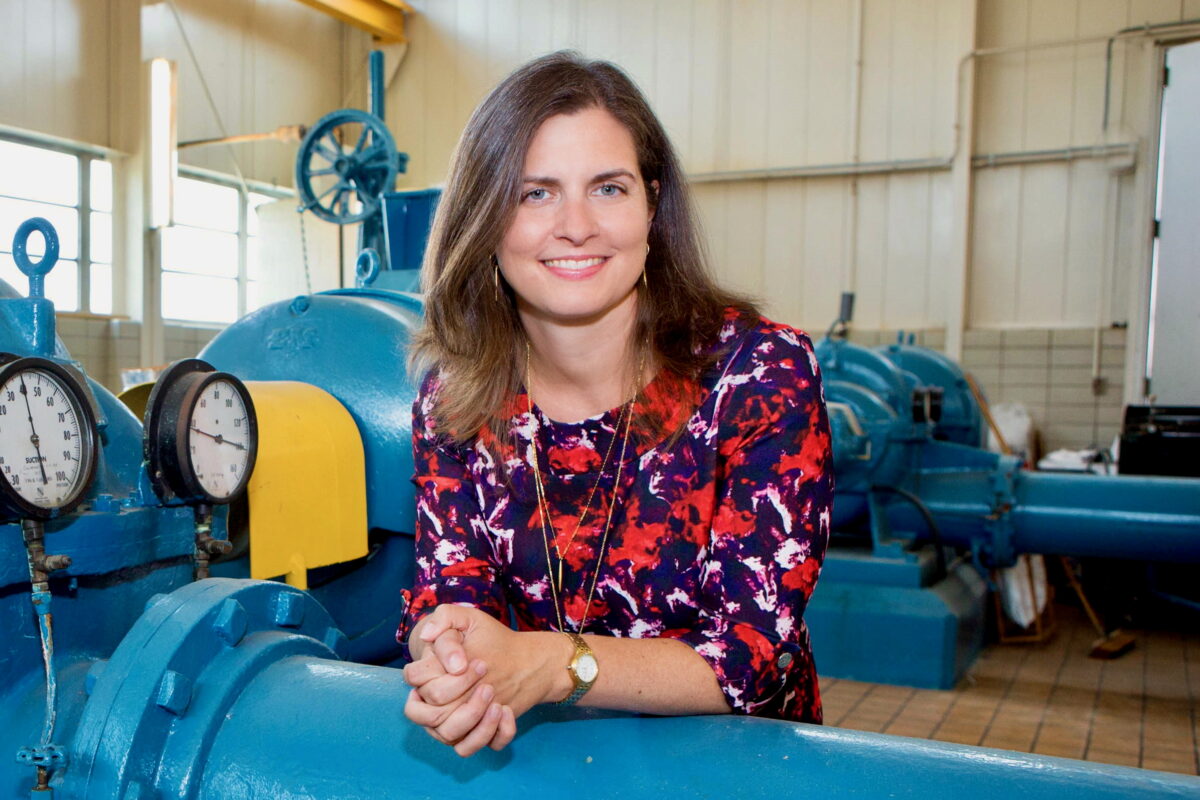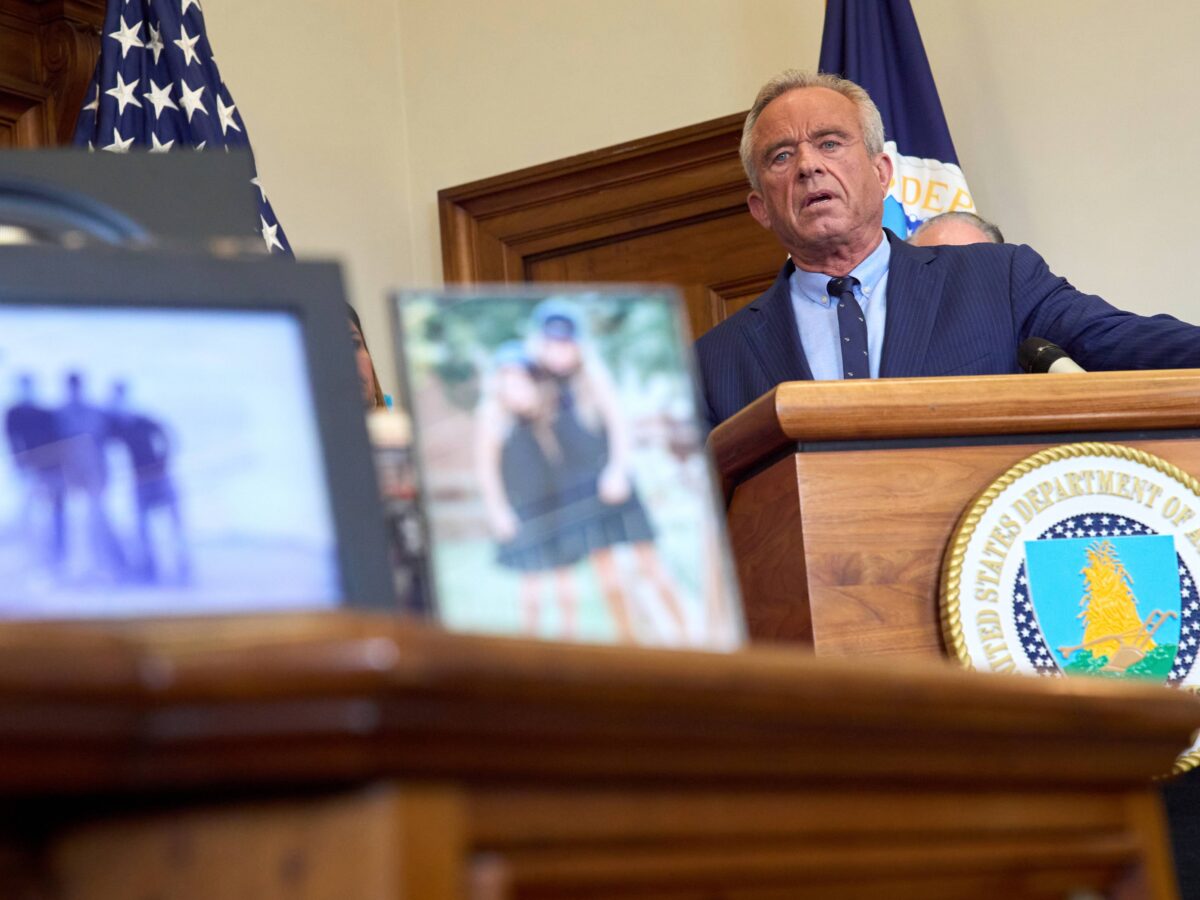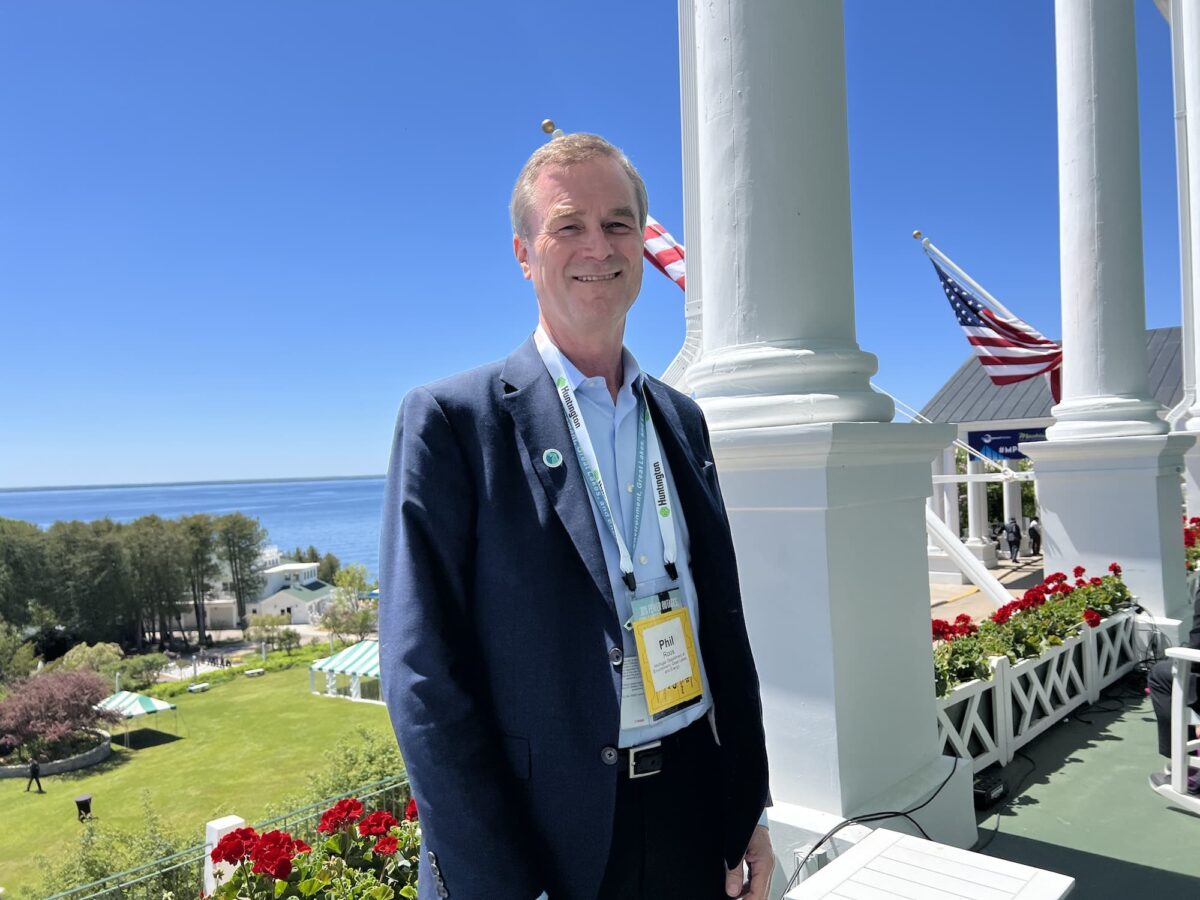Overview:
-“Despite their public statements that they want to protect drinking water, they’re not following through on commitments they’ve made to the American people," drinking water expert Elin Betanzo says of EPA.
-Betanzo received notice July 3 that she is barred from work with the National Drinking Water Advisory Council.
-The investigation came after Betanzo signed a letter protesting federal cuts to research funding.
Two scientists who were blocked from advisory roles at the Environmental Protection Agency say their dismissal is part of an anti-science political climate.
“They take actions like this to silence people that have been outspoken about the need for science and data to support our decisions,” said Elin Betanzo, a Detroit-based water safety engineer who was removed from the National Drinking Water Advisory Council.
“Despite their public statements that they want to protect drinking water, they’re not following through on commitments they’ve made to the American people.”
Betanzo, the president and founder of Safe Water Engineering, LLC, said she learned of her unexpected leave through a July 3 email from the EPA. The agency said it’s investigating Betanzo’s “potential signature on a petition” and she is to “cease all work for EPA.”
That same day, a similar email went to Penelope Fenner-Crisp, a retired EPA toxicologist in Virginia who serves on the Toxic Substances Control Act Science Advisory Committee on Chemicals. Fenner-Crisp has received no further information about her removal from duty, and said she wrote a reply email she hoped would allow her to continue working, she told Planet Detroit.
“All they said was ‘thank you for the information,’” Fenner-Crisp said.
EPA says letter on ‘culture of fear’ misleads public
The scientists’ dismissal followed their signing of a public letter issued by Stand Up for Science. The grassroots group was started by science researchers to protest cuts to federal funding for research, particularly in public health and the environment.
Employees at the EPA wrote and signed the “declaration of dissent,” addressing it to EPA Administrator Lee Zeldin after agency layoffs, firings, and early retirements of nearly 4,000 employees.
Citing Zeldin’s confirmation hearing speech, the letter said he acknowledged, among other things, “the importance of protecting human health through smart regulation.”
The letter accuses Zeldin of promoting a “culture of fear” among its employees. It also said the EPA is undermining the agency’s mission by “ignoring scientific data to benefit polluters” and “reversing progress in vulnerable communities.”
EPA issued a statement that employees “signed on to a letter using their official titles and EPA positions,” adding that the letter “contains information that misleads the public about agency business.”
The agency did not respond to questions about which policy was violated. “(The) EPA cannot discuss ongoing investigations,” an agency spokesperson said.
The federal government dubs appointed science experts on the EPA’s advisory committees as “special government employees,” and they are paid for their board work.
It’s unclear whether government rules bar such employees from signing petitions or public letters; Planet Detroit was unable to find such a rule.
160 EPA employees are on administrative leave for signing the Stand Up for Science petition, MLive reported earlier this month, citing an EPA statement.
MORE PLANET DETROIT REPORTING
VOICES: Artificial food dyes are a Red (40) herring while feds decimate public health
The Trump administration’s actions in the public health arena contradict its “Make America Healthy Again” language, writes Teresa Homsi, the deputy director of the Michigan Clinicians for Climate Action.
GLWA work creates confusion over discolored Detroit drinking water
Detroiters on the lower east side and downtown experienced temporary water discoloration due to valve operations at the Water Works Park treatment plant. While the water remained safe to drink, not all residents in the affected area of the city were notified.
EPA budget cuts represent ‘serious hit’ to Michigan water infrastructure: EGLE’s Phil Roos
EPA’s proposed budget threatens to slash Michigan’s Clean Water and Drinking Water State Revolving Funds by 90%, putting vital water infrastructure projects at risk and potentially increasing utility costs in disadvantaged communities.
Experts miss meetings on PFAS, phthalates
Betanzo was appointed to the EPA’s National Drinking Water Advisory Council in 2021.
In 2015, after the Flint began using the Flint River as a source of drinking water, Betanzo said she recognized that corrosion of the city’s pipe system by river water could cause lead contamination.
She encouraged the study that found elevated lead levels in children living in Flint.
Fenner-Crisp has done international toxics and risk assessment consulting with the World Health Organization. She was also the U.S. delegate to the Office of Economic Cooperation and Development’s working group on endocrine disruptors.
Betanzo and Fenner-Crisp said their removal from board work comes ahead of important meetings on environmental protections. Betanzo just missed a late July emergency meeting on regulating PFAS.
Fenner-Crisp was supposed to be at a July public meeting to discuss risk evaluations on five phthalates commonly used in making plastic. ”We’re supposed to review potentially very risky chemicals that have been out in commerce forever,” she says.
Editor’s note: This story has been updated to correct the committee from which Penelope Fenner-Crisp was suspended, the Toxic Substances Advisory Act Science Advisory Committee. The story has also been updated to note that scientists on these committees are known as special government employees, and to add two missing words to a quote from Fenner-Crisp.





